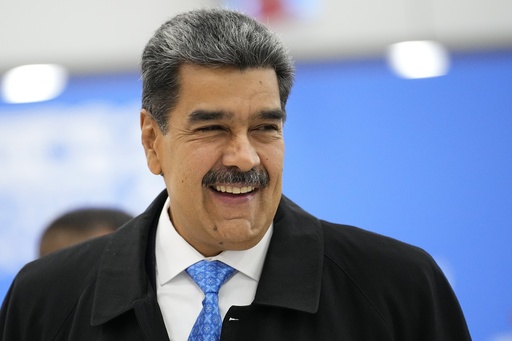
CARACAS, Venezuela — On Wednesday, the Venezuelan government intensified its criticisms of Brazilian foreign relations officials, alleging that they are endangering the diplomatic ties between the two neighboring nations by serving U.S. interests.
The remarks from President Nicolás Maduro’s administration followed a statement by a senior foreign policy aide to Brazil’s president, revealing that Brazil did not endorse Venezuela’s application to join the BRICS group of emerging economies during its recent summit in Russia. This incident has contributed to existing friction between both countries related to the disputed outcomes of Venezuela’s July presidential election, coupled with Brazil and other nations demanding transparency.
In response, Venezuela’s Foreign Relations Ministry issued a statement indicating they summoned Breno Hermann, Brazil’s chargé d’affaires in Venezuela, to express strong condemnation of what they described as the persistent and rude interventionist comments from official Brazilian representatives. Brazil’s embassy in Caracas opted not to comment on the matter.
The ministry also called out Celso Amorim, Brazil’s former foreign affairs minister and a current adviser to President Luiz Inacio Lula da Silva, accusing him of functioning “as a messenger of American imperialism.” They claimed he was making judgments about matters that should be determined by Venezuelans and their own democratic systems, further stating that his actions were “jeopardizing the relationship between the two countries.”
During a hearing with Brazilian lawmakers on Tuesday, Amorim acknowledged the “discomfort” affecting bilateral relations, attributing this to the Maduro government’s failure to disclose detailed election results that would validate the electoral authorities’ announcement of Maduro’s victory. He remarked that enhancements in diplomatic ties “will depend on actions” from Venezuela, but did not elaborate further.
In Brazil’s capital, the Foreign Ministry did not immediately respond to inquiries regarding this issue.
Venezuela’s electoral authorities attributed their inability to publish detailed results to a hacking incident on their website. Meanwhile, the principal opposition coalition managed to obtain vote tally sheets from over 80% of the electronic voting machines across the nation, shared these figures online, and claimed that their candidate, former diplomat Edmundo González, had successfully defeated Maduro.
In the aftermath of the election on July 28, leaders such as Lula of Brazil and Gustavo Petro of Colombia attempted to mediate the electoral discord alongside then-Mexican President Andrés Manuel López Obrador, but these efforts failed to yield positive results. Since then, Maduro has secured his grip on power, overhauled his Cabinet, and imprisoned over 2,000 opponents.
The BRICS bloc, which initially comprised Brazil, Russia, India, China, and South Africa, has since welcomed new members, including Iran, Egypt, Ethiopia, the United Arab Emirates, and Saudi Arabia. Brazil opposed Venezuela’s inclusion in the recent summit discussions.
“Brazil does not seek an unlimited expansion,” Amorim declared to lawmakers. “We believe that BRICS members should be influential countries capable of representing the region, and in our view, Venezuela does not currently satisfy these criteria. This is not a veto; it’s just a perspective expressed. Decisions are made collectively.”
In its statement, Venezuela’s Foreign Affairs Ministry condemned Brazil’s position as “irrational behavior,” drawing parallels to the economic sanctions imposed by the U.S. against the Venezuelan government.
